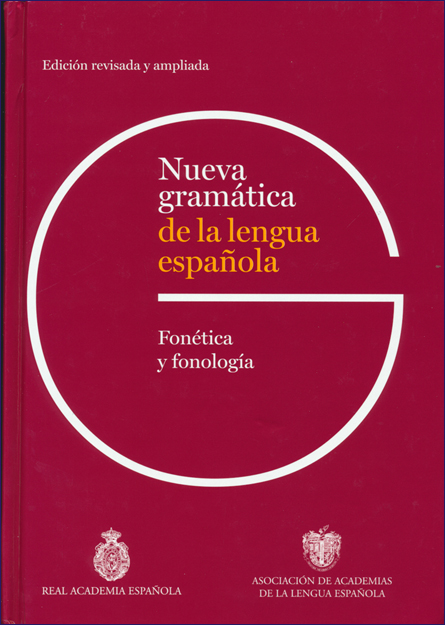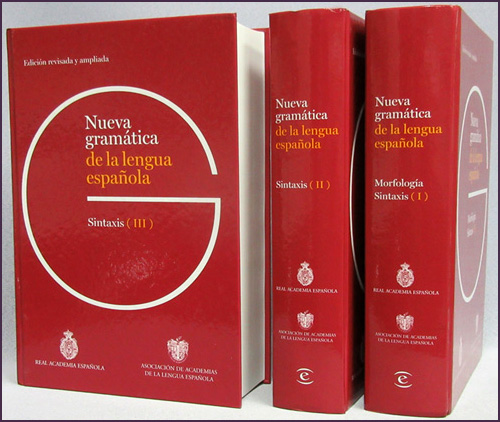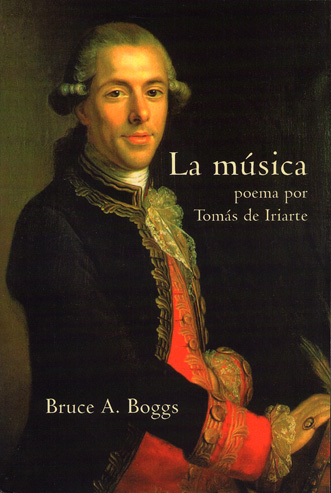La música: poema por Tomás de Iriarte ∥ Boggs, Bruce A.
-----------------------------------
ISBN13: 9781588711083
-----------------------------------
サイズ: 15 x 23 x 2 cm
-----------------------------------
頁 数: 275 pgs.
-----------------------------------
装 丁: paper cover
-----------------------------------
出版社: Juan de la Cuesta
-----------------------------------
発行年: 2007
-----------------------------------
発行地: Newark
-----------------------------------
双書名: Ediciones Criticas, 33
追加情報: ※ 詳細PDFリンク
- A Critical Edition by Bruce A. Boggs
Description:
トマス・デ・イリアルテの長篇詩 ’La musica’ 全文校訂版。作品研究・解説を収録。
In this first-ever critical edition of La música, Bruce A. Boggs examines the cultural significance of Tomás de Iriarte’s poem, taking an interdisciplinary approach that seeks to reconstruct the musical and literary contexts which informed this singular work. Iriarte’s La música began as an entertaining project for friends and fellow musicians who gathered in musical tertulias known as Academias de Armonía. Soon, Iriarte would expand his work to five cantos and approximately 2,840 verses which included a prologue and appended notes. La música, which would become Spain’s most significant contribution to didactic poetry and one of the few Peninsular works in the eighteenth century that was translated into other European languages, was published in an elegant edition by the Imprenta Real in 1779. Fifteen editions of Iriarte’s poem would circulate in Europe and the Americas before the end of the nineteenth century.
Through a comprehensive introduction and extensive footnotes, Boggs explores the intersections among genre, theory, and practice where two distinct media–poetry and music–coincide in a text whose purpose is didactic. The critical introduction argues for the uniqueness of the poem in the Spanish and European contexts, its objectives and its timeliness in a period in which the middleclass emerges as consumers of and amateur participants in musical culture. Iriarte’s musicianship and his work as a composer; the social meaning of musical practice in eighteenth-century Spain; the junction of aesthetics, music history, theory and practice in the poem; myth, imagery and the pastoral mode; and reception and extant editions of La música are subjects of the remaining sections of the introduction.
This project advances our understanding of Tomás de Iriarte’s poem, and its relation to works by musical contemporaries J. J. Rousseau, Antonio Rodríguez de Hita, and Antonio Eximeno. Reading La música in the context of the limited Enlightenment program in Spain, and within the period of heightened theoretical speculation about music in Europe, Iriarte emerges as one of Spain’s principal apologists for music as a tool for the moral development of the individual and the nation as a whole, and La música stands as one of the quintessential Enlightenment texts that speaks for the Cultural transformation of society.
TABLE OF CONTENTS:
Acknowledgments......7
Introduction......11
1. Uniqueness of La musica......11
2. Tomas de Iriarte: Musician and Composer......19
3. The Significance of Music in Eighteenth-Century Spain......35
4. Theory and Practice: Towards a Pedagogical Taxonomy......52
5. Pastoral, Myth and Imagery in La musica......78
6. Editions of La musica......95
7. Reception of La musica......101
8. Present Edition and Editorial Criteria......113
WORKS CONCULTED......114
LA MUSICA, POEMA POR D. TOMÁS DE IRIARTE ......125
Prologo......126
Canto Primero......137
Canto Segundo......161
Canto Tercero......177
Canto Cuarto......197
Canto Quinto......222
Advertencias......243
Index......269
Index of titles......273
-

RAE(スペイン王立アカデミー)とASALE(スペイン語アカデミー協会)が共同編集した改定新版「アカデミア最新スペイン語文法」シリーズ(既刊3巻)。2025年10月に刊行された本書は、その第4巻(最終巻)です。 2011年版の 555頁から 新版は 700頁余と大幅に改訂増補 !!
※ スペイン語の音声を体系的に理解するための資料として、研究者、教育関係者、上級学習者に不可欠であり、大学図書館・研究室にも必須の一冊です。
※ 大幅な改訂と更新: 旧版以降に進んだ最新の研究成果、特に言語の「バリエーション」に関する知見を全面的に反映。技術の進歩を活用し、内容の理解を助けるための工夫が凝らされています。
※ 具体的な革新点: 知覚音声学への配慮、第1章の全面的な書き直し、イントネーションを扱う第10章の大幅な改訂、QRコードによる発音サンプルの導入、補足的な参考文献の追加など。- Nueva gramática de la lengua española: Fonética y fonologia ∥ R.A.E.
- ¥16,500
-

※ スペイン王立アカデミーとASALE(スペイン語アカデミー協会)が共同編纂した、スペイン語の語彙の歴史を包括的に記録する辞書。語源・形態・意味の変化を詳細に解説しています。
※ DHLE(スペイン語歴史辞典)プロジェクトは現代のデジタル技術と国際的な共同作業体制を駆使して進行中の画期的な取り組み。
※ 10巻本・合計2万ページ超となる今回の紙書籍版(印刷版)は本プロジェクトの記念碑的な出版物。図書館・研究室の重要資料として長期保存の価値が高い文献になります。今後の更新はデジタル版に移行する見込みで、今回の書籍版は将来入手困難になることが予想されます。
※ 全10巻のうち、第1~3巻は現在では入手困難な1960年~1996年版(a-apasanca、b-bajoca)の復刻版です。過去の貴重な学術的成果であり、一次史料としての価値が高いものです。
※ 第4~10巻は2005年以降に進められたデジタル版DHLEから代表的な項目を抜粋して構成。
収録内容はスペイン語語彙史研究の最新成果を反映し厳選されています。- Diccionario histórico de la lengua española. in 10 vols. ∥ R.A.E. ※ 年度末セール特価 ※ 在庫品先着一名様限り 即納可!
- ¥186,120
-

好評発売中!!
第2版 増補改訂版3巻本 「アカデミア最新スペイン語文法」。2009年に2巻本として出版されてから16年、さらに広く深く、スペイン語圏全体のスペイン語を総合的に扱うスペイン語文法書の決定版です!
本書はスペイン王立アカデミー(RAE)とASALE が共同で編纂した最新のスペイン語文法を、より精緻に再構成した改訂増補版であり、形態論から統語論に至るまで、スペイン語の構造を体系的かつ包括的に示す研究書です。従来版よりも内容説明が充実し、分析の明確化、現象の地理的・社会的分布に関する情報の拡充、さらに学習者・研究者双方に配慮した丁寧な解説が加えられています。全3巻・約5000頁に及ぶ大部の構成は、汎ヒスパニック的視点を重視し、スペイン語圏全体の多様性を踏まえた記述を特徴としています。記述文法と規範文法の両面を兼ね備え、学術研究・高度教育機関において必携の基礎資料となる一冊です。- Nueva gramática de la lengua española - Edicion revisada y ampliada in 3 vols. ∥ Real Academia Española
- ¥48,400

